Academic Staff and Fellows
Dr Marika Asgari
Marika is a Data Science Lecturer. She joined Newcastle University in January 2024. 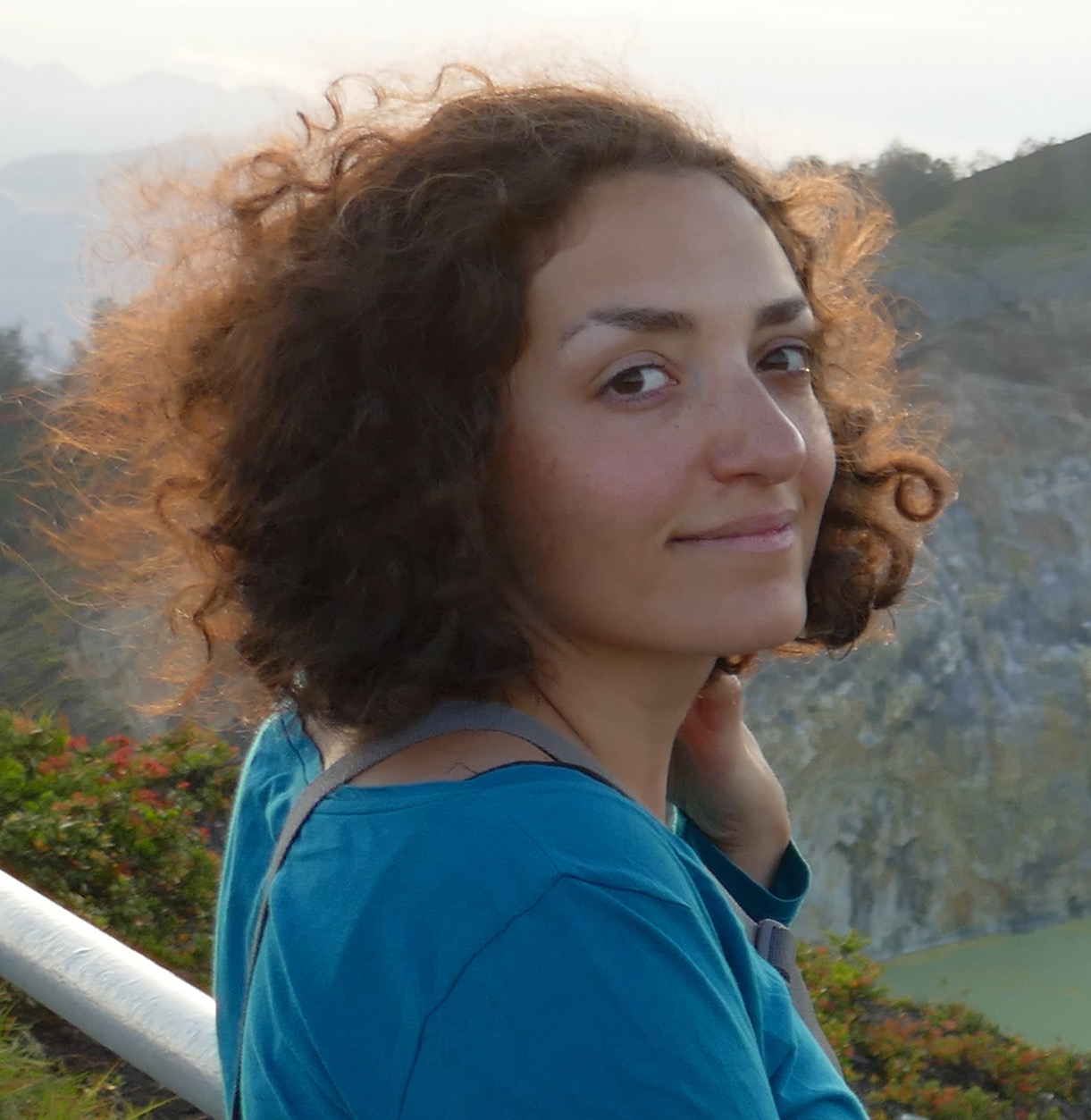
“I’m a cosmologist and study the large scale structures of the Universe. I’m interested in understanding the nature of dark matter and dark energy through modelling and analysing data from probes of the large scale structures. I am also interested in the interactions and connections between baryons (regular matter) and their dark matter environment.”
Dr Dominic Bowman
Dominic is a Reader in Astrophysics and a Royal Society University Research Fellow, and joined Newcastle University in September 2023.
Personal website
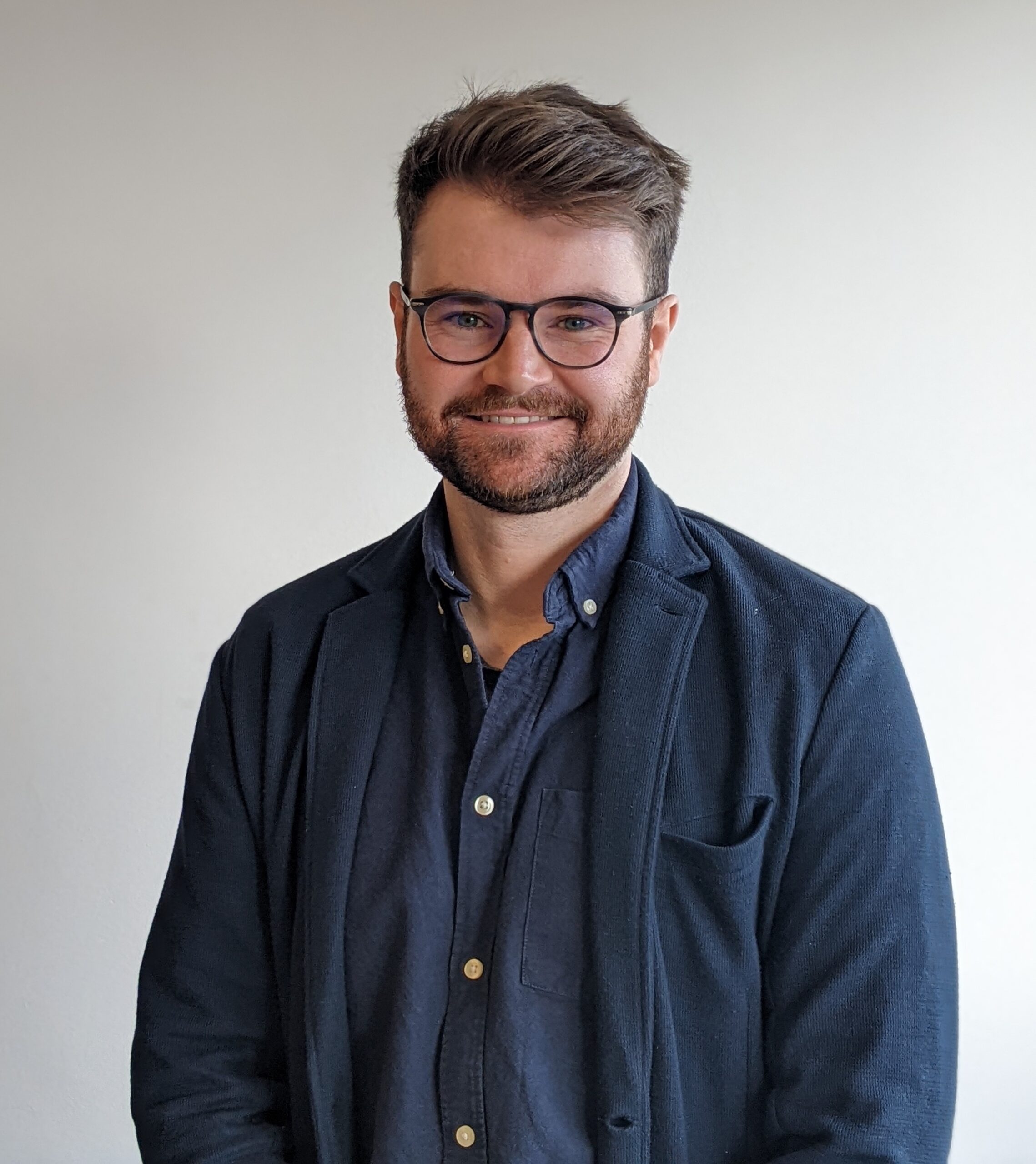
“My main research area is Asteroseismology, which is the study of oscillations inside stars to learn more about their interior physical properties and processes. My current ERC/UKRI Frontier Research Grant, SYMPHONY, focuses on asteroseismology of massive stars, which are those that will eventually explode as violent supernovae and leave behind a neutron star or black hole. The project is using existing and developing new techniques for applying asteroseismology and determining the physical properties of massive stars, with a particular focus on Blue Supergiants, such as their interior rotation profiles, masses and ages. These properties are not accurately known for massive stars because our best current theoretical models contain large uncertainties. Massive stars have self-excited gravity and pressure mode oscillations which probe the deep stellar interiors and radiative envelopes, respectively, thus provide excellent insight of the physics at work within stellar interiors.“
SYMPHONY project website: https://research.ncl.ac.uk/symphony/
Dr Tiago Costa
Tiago is a Newcastle Academic Track Fellow and he joined Newcastle University in October 2023.
Personal website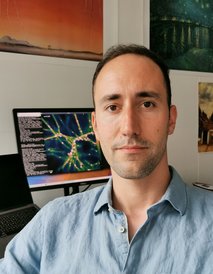
“I research the physical governing shaping galaxy evolution, and, in particular, the impact of Active Galactic Nuclei (AGN), the growth of supermassive black holes in the high-z Universe, the hydrodynamics of galactic winds and origin of multi-phase structure. I work with analytic models as well as in numerical radiation-hydrodynamic modelling AGN physics within cosmological simulations of galaxy formation. I work closely with observers and am part of several observational programmes (with ALMA, JWST, MUSE) designed to bridge the existing gap between theory and observations.“
Dr Chris Harrison
Chris is a Reader of Astrophysics and UKRI Future Leaders Fellow, he joined Newcastle in 2020.
Twitter: @CMHarrisonAstro | Personal website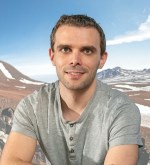
“I am an astronomer with the main goal of understanding how galaxies formed, with a particular interest in the role of growing supermassive black holes (i.e., Active Galactic Nuclei; AGN) and galaxy dynamics. Towards this I use a suite of observational facilities across the world (and in space!) covering the electromagnetic spectrum, to study both nearby and distant galaxies. I have been working with collaborators who work on cosmological and isolated galaxy simulations to use observations to test models. I previously held a fellowship at the European Southern Observatory (ESO), and I still work closely with them, including making preparations for the world’s biggest telescope – the Extremely Large Telescope (ELT). I also research sonification – the process of representing data with sound – for applications of analysing complex datasets, immersive communications and accessible education.
I have a strong interest in public engagement and accessibility to science. This includes the creation of educational exhibitions, activities and workshops, and leading international engagement projects. More information about my engagement and EDI/accessibility activities can be found on my personal website.”
Dr Adam Ingram
Adam is a Physics Lecturer and Royal Society University Research Fellow, he joined Newcastle in 2021.
Personal website | NU Staff Profile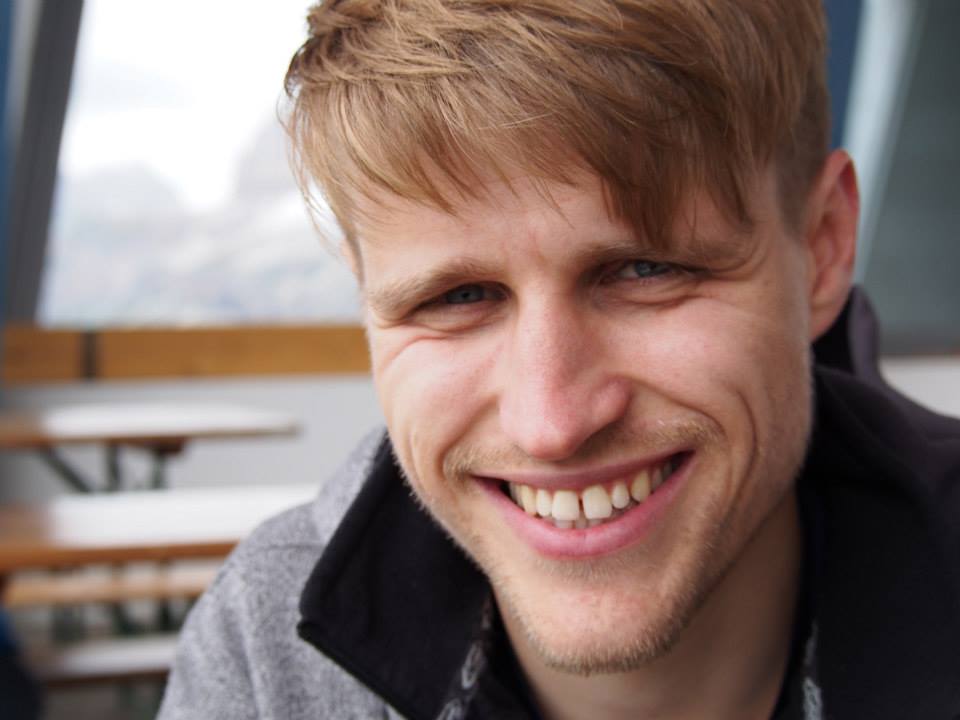
“I use X-ray observations and theoretical modelling to probe the environment of accreting black holes and neutron stars. This helps us learn about the very strong gravitational fields close to black hole event horizons, and how these objects formed and grew to their current sizes. I study quasi-periodic oscillations (QPOs) – nearly periodic changes in the observed X-ray brightness of the accreting plasma – and the idea that these result from relativistic precession. I also use the variability of reflected X-rays to constrain the geometry close to the black hole and measure its mass. I am interested in using X-ray polarimetry to learn about black holes and neutron stars, a field that will be revolutionized when IXPE launches in 2021. I completed my PhD at Durham University (2008-2012), was a postdoc (2012-2014) and NWO Veni fellow at the University of Amsterdam (2014-2017), and began Royal Society fellowship at Oxford (2017-2021), before moving to Newcastle in 2021.”
Dr Dani Leonard (web)
Dani is a Data Science lecturer, they joined Newcastle in 2019.
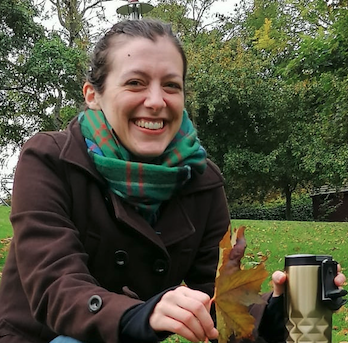
“I am interested in testing and constraining extensions to the standard cosmological model, especially alternative theories of gravity and dynamical dark energy. To do this, I use observables which are sensitive to the growth of large-scale structure, in particular weak gravitational lensing and galaxy clustering. I also work on weak gravitational lensing and galaxy clustering more generally, including improved methods for mitigating, and exploiting astrophysical modelling uncertainties such as the intrinsic alignment of galaxies and galaxy bias. I am passionate about improving the inclusion of traditionally under-represented groups in the physical sciences. I am a member of the Large Synoptic Survey Telescope Dark Energy Science Collaboration (LSST DESC).”
Dr Markus Rau
Markus is a Data Science Lecturer. He joined Newcastle University in January 2024.
NU Staff Profile
Dr David Rosario
David is a Physics lecturer, he joined Newcastle in 2021.
Twitter: @astro_sario | NU Staff Profile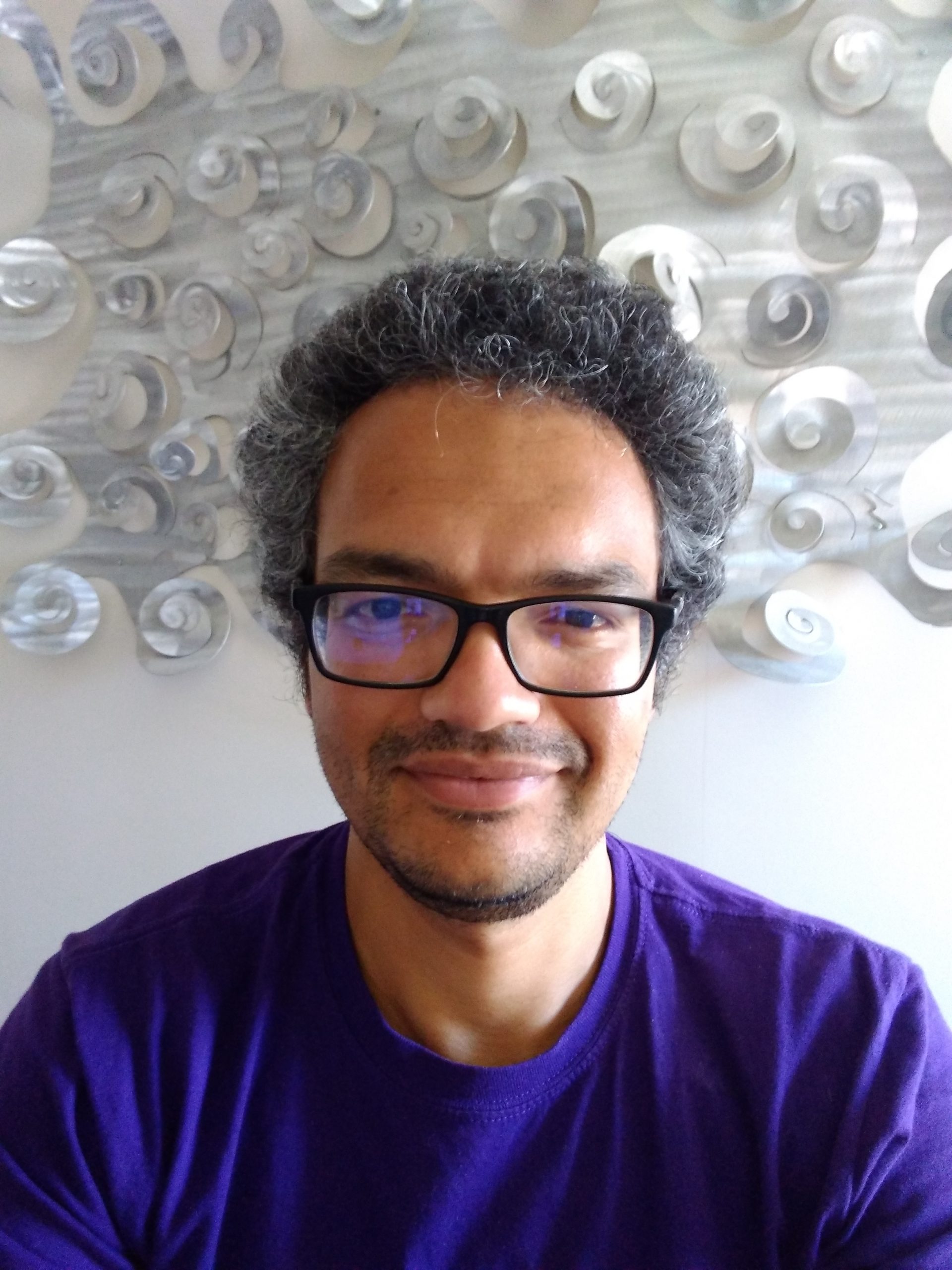
“I am a multi-wavelength observational astronomer, interested in the relationships between galaxies and their supermassive black holes. I explore the ways that some of the hottest things in the Universe – Active Galactic Nuclei (AGN) and Quasars – interact with some of the coldest stuff in space, the dusty clouds of molecular gas from which stars are born. I use some of the world’s best facilities for my work; the NASA/ESA great space observatories, including the James Webb Space Telescope (JWST) and the Hubble Space Telescope (HST), and some of the biggest telescopes here on Earth. My life is an exercise in internationalism. I grew up in the Middle East and completed an electronics engineering degree at the Indian Institute of Technology, Kharagpur (IIT-KGP). I fell headlong into my fascination for AGN while working on a PhD at the University of Virginia. In hot pursuit of supermassive black holes across the Universe, my career took me through the redwoods of the University of California, Santa Cruz (UCSC); among the beech forests by the Max Planck Institute for Extraterrestrial Physics (MPE) near Munich; and over the dales near Durham University, before taking root here in Newcastle.“
Dr Cora Uhlemann
Cora is a Reader in Cosmology, she joined Newcastle in 2020. In March 2024 she became a Professor at Bielefeld University and Visiting Professor at Newcastle.
Personal website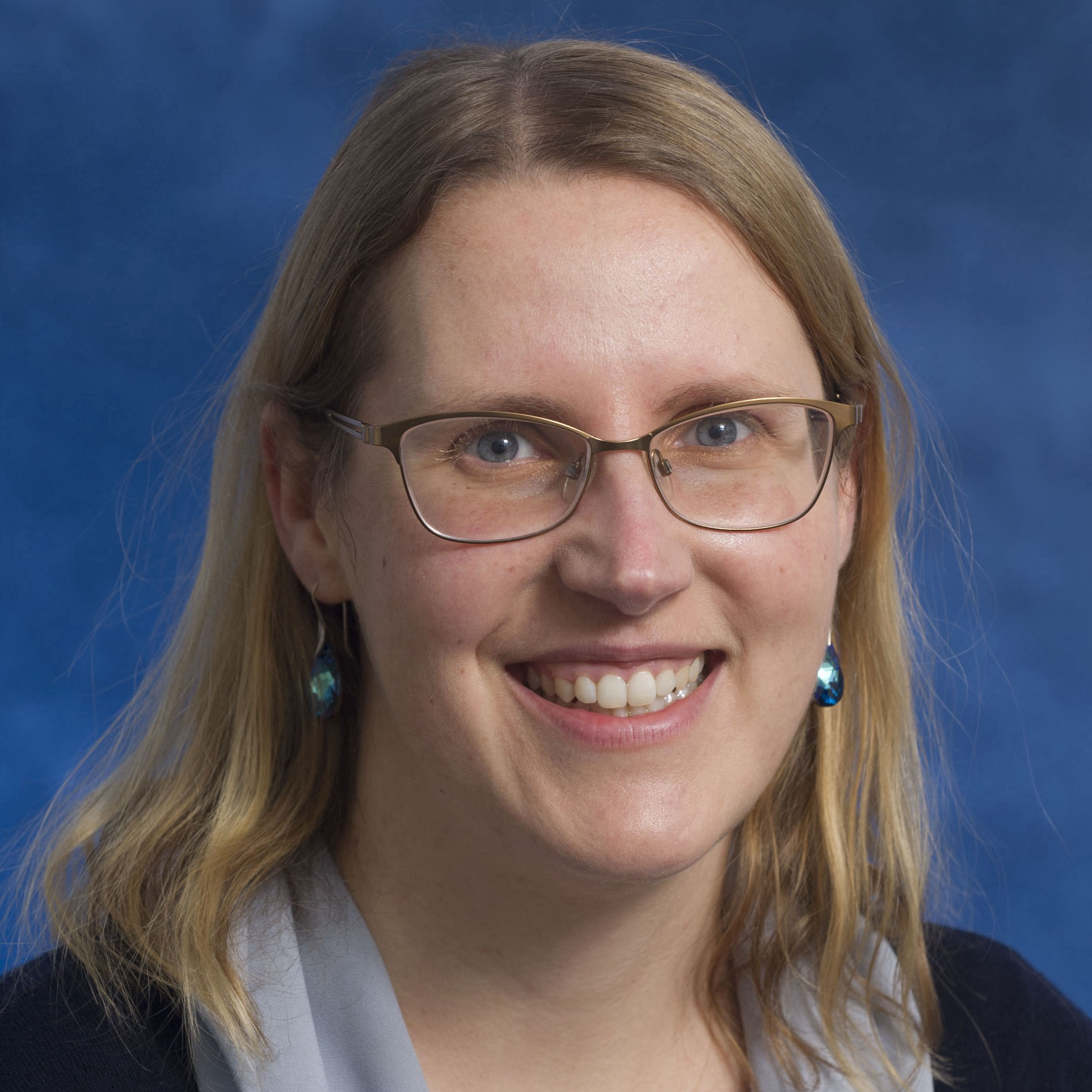
“I am a cosmologist working on modelling the cosmic large-scale structure in the nonlinear regime and using it to probe fundamental physics and cosmology. My research focuses on solving the gravitational dynamics of dark matter and developing summary statistics for galaxy clustering and weak lensing. I am a member of the Euclid galaxy survey collaboration where I co-lead the work package on Additional Galaxy Clustering and participate in the Higher-Order Weak Lensing Statistics work package, and a member of the Vera C. Rubin Observatory Legacy Survey of Space and Time (LSST) active in the higher-order statistics topical team. My ERC Starting Grant “Probing the cosmic large-scale structure beyond the average” will run from 2024-2029. Together with Ulrike Böhm, I am running the facebook page for female physicists, called ‘Physikerinnen’. Every week, we highlight an excellent woman in physics (from student to professor) as ‘female physicist of the week’.“
Dr Joachim Harnois-Deraps
Joachim is a Data Science Lecturer, he joined Newcastle in 2021.
NU Staff Profile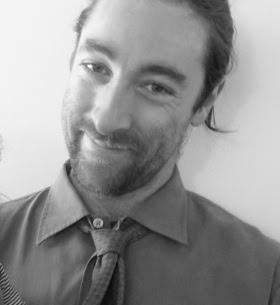
“I combine simulations and observations of galaxy surveys to measure cosmological parameters. I am the PI of the Scinet LIght-Cone Simulation suites (SLICS), a public series of over 1000 N-body runs ideally suited to estimate the uncertainty about cosmological measurement, including cosmic shear, galaxy-galaxy lensing, galaxy clustering and redshift space distortions — the SLICS were central to 30 journal papers to date, see https://slics.roe.ac.uk. I am now an Ernest Rutherford Fellow at Newcastle University, and am leading the core numerical simulation programme in many international weak lensing collaborations (KiDS, LSST and Euclid). You can find a list of my publications here.”
Dr Andrei Igoshev
Andrei is a Royal Society University Research Fellow, he joined Newcastle in 2024.
Twitter: @ignotur | NU Staff Profile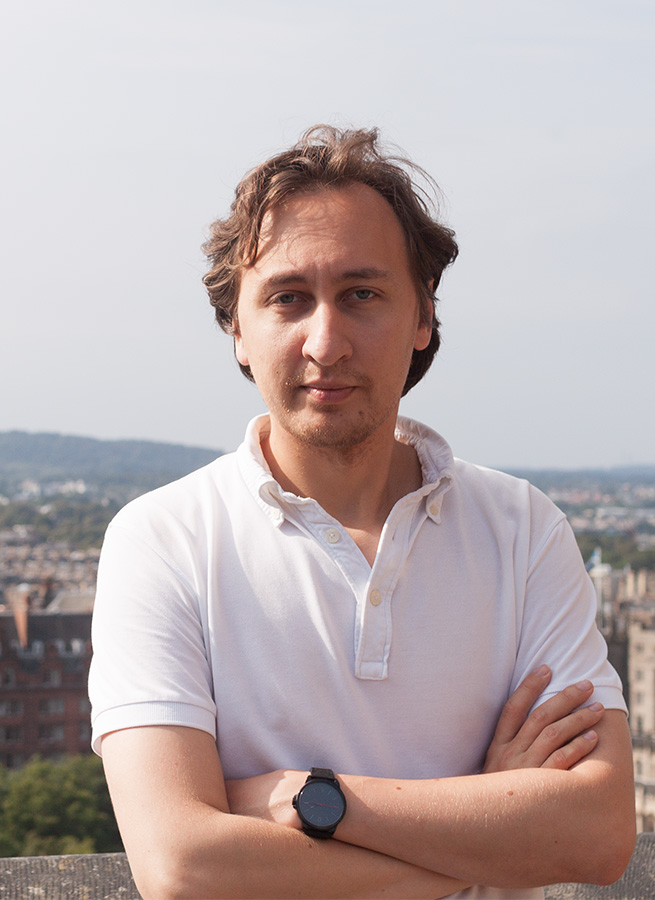
“I am an astrophysics and applied mathematician working on magnetic field evolution of neutron stars. In my research, I use advanced astrophysical fluids dynamics simulations and X-ray observations. Magnetic fields of neutron stars are among the strongest in the Universe and I am trying to understand how these fields are formed and shape observational properties of magnetars, dim isolated neutron stars and central compact objects. During my University Research Fellowship, I plan to model superconductivity in neutron star cores and its interaction with magnetic fields. I completed my PhD in 2017 at Radboud University Nijmegen (the Netherlands) and was a postdoc at Technion – Israel Institute of Technology (2018-2019) as well as postdoc at University of Leeds (2019-2024). You can find a list of my publications here“
Postdoctoral research associates
Dr Vladislav Loktev
Vladislav is a Guest Researcher working with Dr Adam Ingram.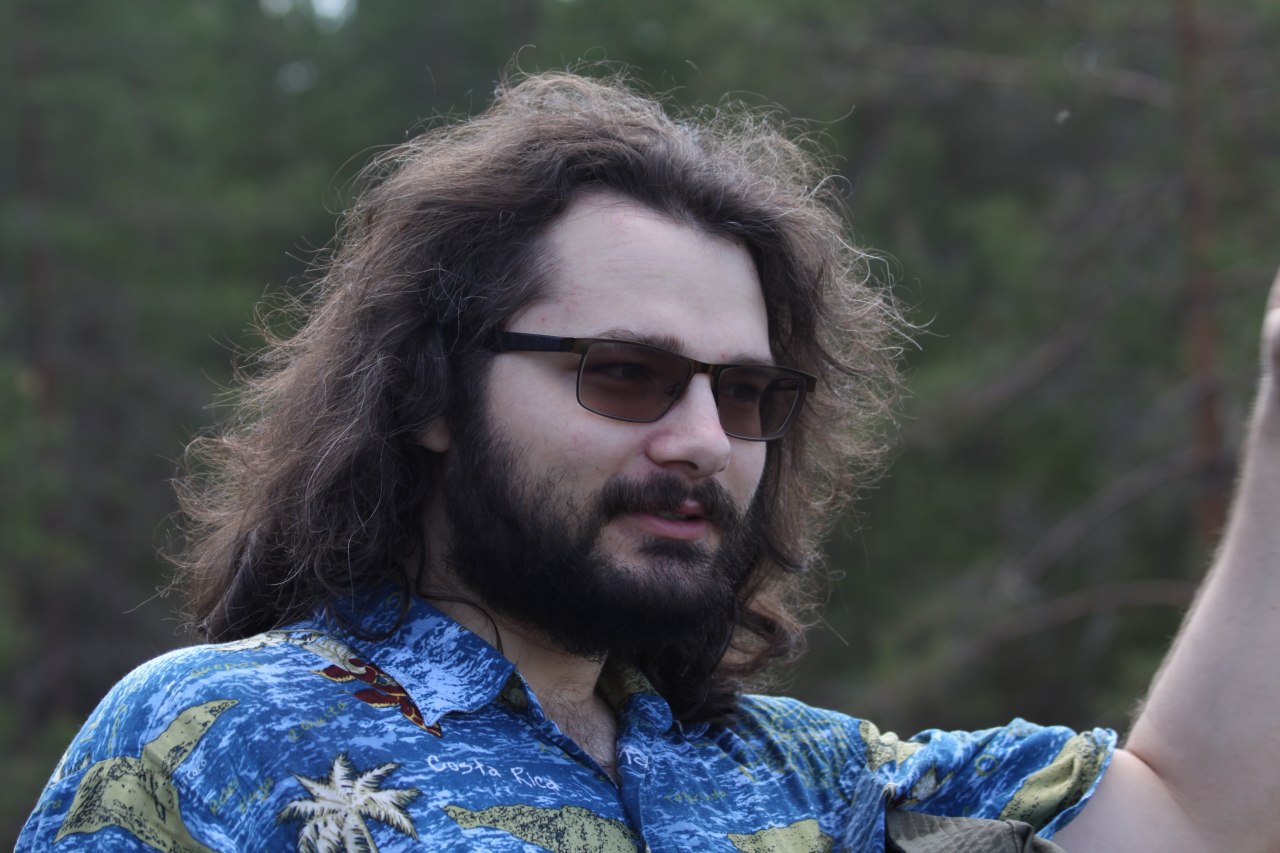
“I joined Adam’s group as a guest post-doc researcher in autumn 2025. I study X-ray binary systems, that is a stellar mass black hole accreting matter from a companion star. I focus on X-ray timing and polarimetry properties of these phenomena; my project deals with constructing and testing analytical models to describe the physics of black hole accretion process. I completed my PhD from the University of Turku, Finland, in 2025.”
Dr Nisha Grewal
Nisha is a Postdoctoral Research Associate in Statistics working with Marika Asgari, and joined Newcastle University in September 2025.
“As a cosmologist, I study the evolution of large-scale structure in the Universe to measure dark matter and dark energy. I am particularly interested in small scales of the Universe, where nonlinear effects dominate. Originally from California, I completed my undergraduate degree at Wesleyan University and my MSc and PhD at the University of Edinburgh. During my PhD I studied applications of higher-order statistics in weak lensing analyses to improve constraints on cosmological parameters that describe the dark sector. My current research focuses on modelling the intrinsic alignment of galaxies to reduce systematic effects in weak lensing analyses. I am optimising the halo model for Stage-IV surveys using hydrodynamical simulations. I am a member of the Kilo-Degree Survey and the LSST Dark Energy Science Collaboration. Beyond my research, I am passionate about science literacy and outreach.”
Dr Jan Henneco
Jan is a Postdoctoral Research Associate in Stellar Astrophysics working with Dominic Bowman, and joined Newcastle University in June 2025.
Personal website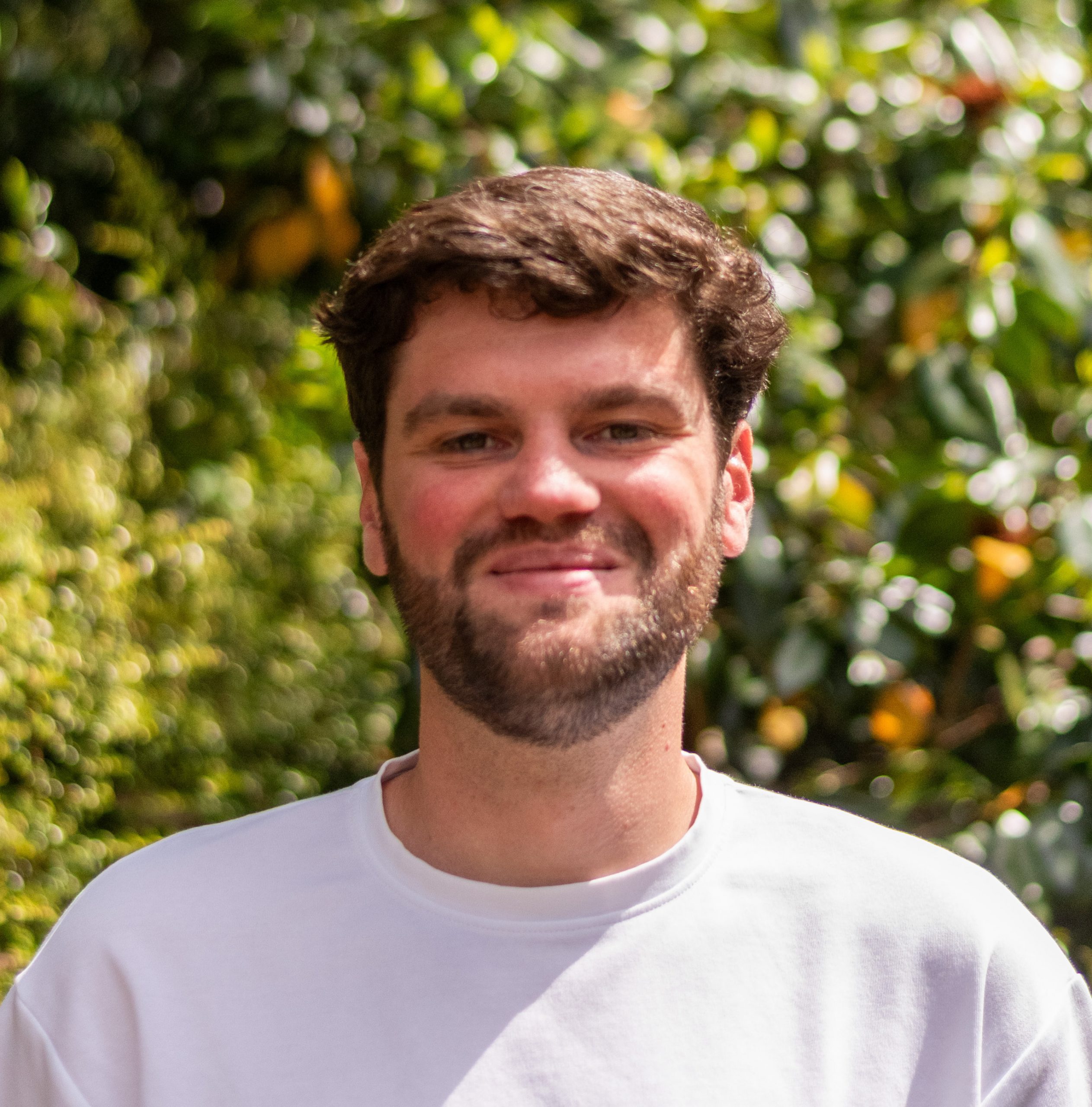
“I am a theoretical astrophysicist exploring the interface between binary star physics and asteroseismology. Studying binary star systems has been extremely valuable for our understanding of stellar structure and evolution. However, the various, often ill-constrained interactions between stars in a binary system add a layer of complexity to truly unravelling the lives of binary components and their ultimate products. By making the connection with asteroseismology, the study of stellar interiors using stellar pulsations, I aim to untangle some of these complexities. Originally from Belgium, I completed my BSc in Physics and MSc in Astronomy and Astrophysics at KU Leuven from 2015 to 2020. During my MSc studies in Leuven, I came into contact with binary physics and asteroseismology for the first time, and ended up writing my MSc thesis on the effects of the centrifugal acceleration on gravity-mode pulsations in intermediate-mass stars. Afterwards, in February 2021, I moved to Heidelberg (Germany) and started my PhD at the Heidelberg Institute for Theoretical Studies (HITS). During my PhD, I computed large grids of 1D binary evolution models to predict which binary systems are likely to result in stellar mergers. Afterwards, I began exploring whether and how asteroseismology can help us distinguish between merger products and stars born as single stars by predicting the properties of their pulsations. In June 2025, I started my first postdoc in the group of Dominic Bowman at Newcastle University, where I will continue to work on binary stars and asteroseismology, and expand my scope to new topics and techniques.”
Dr Keegan Thomson-Paressant
Keegan is a Postdoctoral Research Associate in Stellar Astrophysics working with Dominic Bowman, and joined Newcastle University in February 2025.
Personal website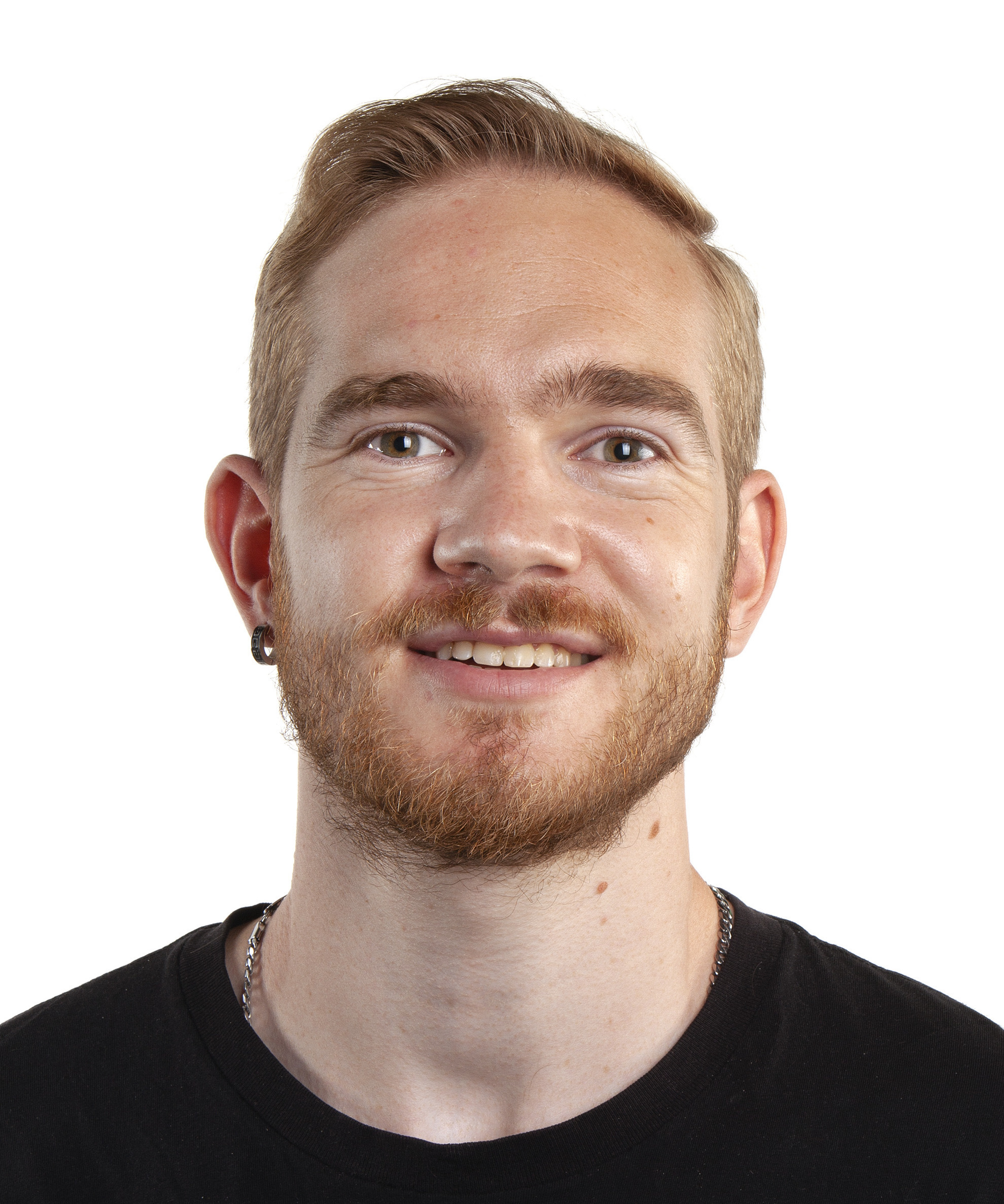
“I am an observational astronomer, working on identifying and characterising the surface magnetic fields around massive stars as part of the SYMPHONY project. I hope to combine these results with information acquired from pulsation analysis determed via space telescope photometry, in order to perform magneto-asteroseismic studies of a wide range of stars. Born and raised in Canberra, Australia, I completed a BSc at the Australian National University. I then moved to Leiden University, Netherlands, where I acquired an MSc specialised in Astronomy Research. Following this, I travelled to Paris, France, where I completed a PhD at the Paris Observatory, with a thesis dedicated to the study of magnetism in pulsating variable stars. During this time, I had the opportunity to spend a year at ESO Garching, Germany, where I worked on a different project to my PhD, namely looking for exoplanets in binary systems using differential astrometry. Throughout this pathway my research experience has touched on a wide range of topics, from radio observations of the interstellar medium, to exoplanet detections using a variety of techniques, and now studying stellar physics using both magnetic measurements and asteroseismology. Alongside my research, I am very invested in teaching and outreach projects, as I believe that informing the wider public and the next generations of researchers about our day-to-day work, and the importance of it, is an essential part of our duty as scientists.”
Dr Laura Scott
Laura is a Postdoctoral Research Associate in Stellar Astrophysics working with Dominic Bowman, and joined Newcastle University in Sept 2024. 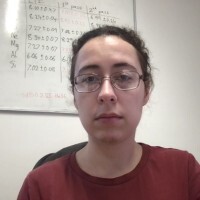
“I grew up near Derby in the UK. I did an MSci in Physics and Astrophysics at the University of Birmingham, before going on to complete a PhD at Keele University. During my PhD I investigated how mixing at the boundary between convective and radiative regions inside stars can affect their evolution. I did this by putting the results of hydrodynamic models of convection into stellar evolution models. After my PhD, I went to Armagh Observatory for a postdoc. My work in Armagh was on hot subdwarf stars, particularly the heavy metal subdwarfs. These stars have strong absorption lines from elements such as lead and zirconium in their spectra. I worked on modelling these stars’ atmospheres using chemical stratification and diffusion to reproduce their spectra. As of September 2024, I began a postdoc in the SYMPHONY project of Dominic Bowman. I use space photometry to extract pulsation frequencies of massive stars and perform forward asteroseismic modelling to constrain their interior mixing and rotation profiles.“
Dr Ann Njeri
Ann is a Research Associate in Astrophysics working with Chris Harrison. She joined Newcastle in 2022.
Twitter @njeri_ke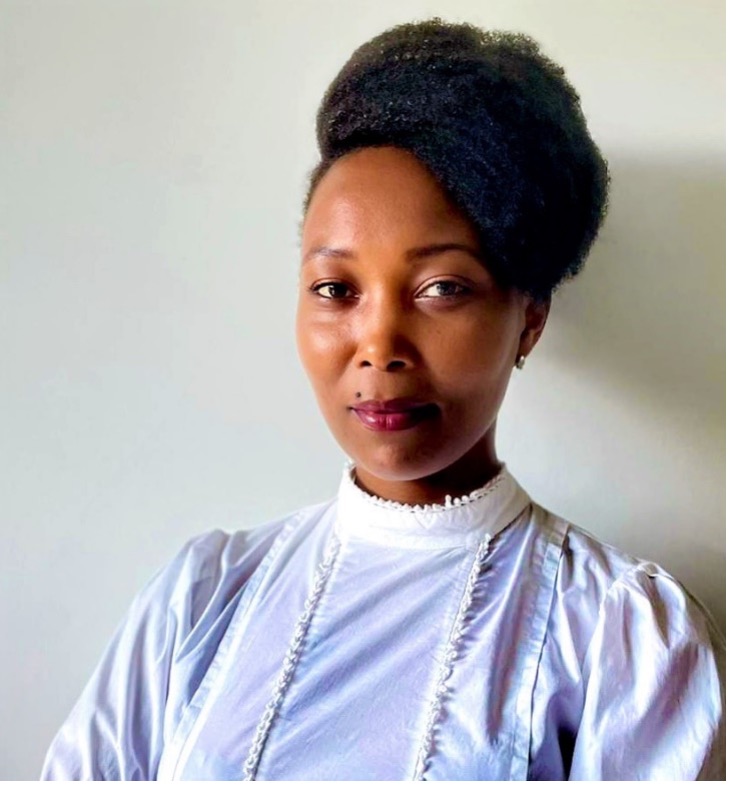
“One of the most enduring and fundamental questions in modern astrophysics is understanding how galaxies form and evolve through cosmic time. Key to this question is understanding the interplay and feedback between star-formation (SF) and accretion onto supermassive black holes (SMBHs). High sensitivity, high angular resolution radio observations are a crucial part of these investigations, uniquely providing spatially resolved tracers of SF and accretion (Active Galactic Nuclei, AGN) in high redshift galaxies. I use radio interferometry and the Very Long Baseline Interferometry (VLBI) techniques to disentangle AGN contribution from SF processes over a range of redshifts, using unprecedented large field-of-view, ultra-deep and high-resolution radio imaging provided by radio instruments such as the eMERLIN, the European VLBI Network and the Very Large Array. At Newcastle, I am working on the Quasar Feedback Survey and using radio observations from facilities such as the eMERLIN, VLA and LOFAR to establish how quasars feedback on their host galaxies. Besides research work, I am passionate about education and mentorship. I founded the programme “Elimisha Msichana Elimisha Jamii, EMEJA” (Swahili for ‘Educate a Girl, Educate the entire Community’), a mentorship programme addressing the issue of gender disparity and equality in education among young schoolgirls in rural areas of Kenya and Uganda. EMEJA is working with the local communities and positively tackling some of the social issues (e.g., teenage pregnancies, early marriages, low STEM uptake) hampering girls’ education via Astronomy outreach, mentorship, targeted STEM workshops and scholarships opportunities, guided by long-term student tracking and monitoring. The overarching objective for this programme is to ensure a 100% primary-secondary education transition for these schoolgirls.”
Dr Steph Campbell
Steph is a Research Associate in Astrophysics working with David Rosario. They joined Newcastle in 2023.
Twitter: @astrojocksteph | Personal website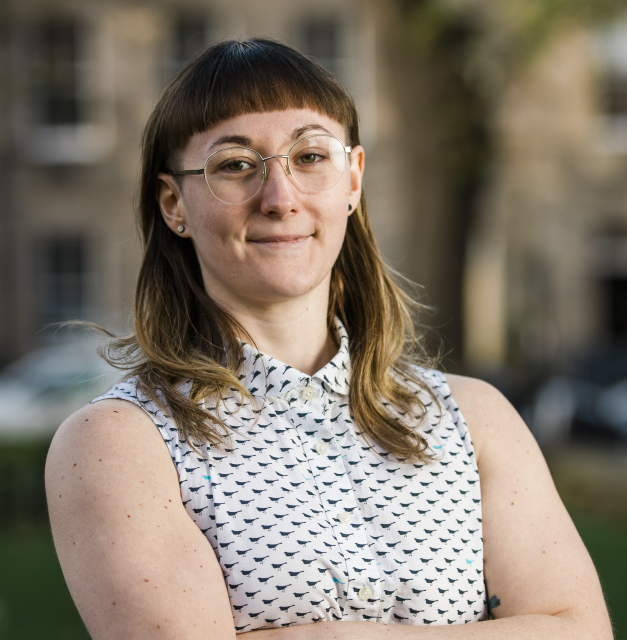
“My research is concerned broadly with the topic of galaxy evolution, and focuses in on how their evolution is shaped and impacted by the supermassive black hole at their centers. To explore this I use multiwavelength data from many instruments in order to develop a full picture of the structures, properties, motions and processes in the regions close to the black hole. New facilities such as JWST allow these scales to be resolved observationally in some wavelengths for the first time, giving new insight into this high energy region. Alongside this, I am still keenly interested in galactic dynamics, which was the focus of my PhD research. Outwith research, I devote time to improving equality, diversity and inclusion, improving the structures to remove barriers to underrepresented groups in higher education, in science, and in Astronomy.”
Postgraduate Students
Rintaro Kanaki
Rintaro is a second-year PhD student in astronomy.
Personal website
“I am originally from Tokyo and completed my B.Sc. in Physics at the University of Bayreuth and my M.Sc. in Astrophysics at Ludwig Maximilian University of Munich. Since 2024, I have been pursuing a PhD in Astrophysics in Newcastle, focusing on cosmology. My research aims to develop scalable and efficient inference methods for Stage IV galaxy surveys such as LSST.”
Rion Glenn Nazareth
Rion is a first-year PhD student in astronomy and joined Newcastle University in November 2025. His supervisor is Dr. Tiago Costa.
Personal website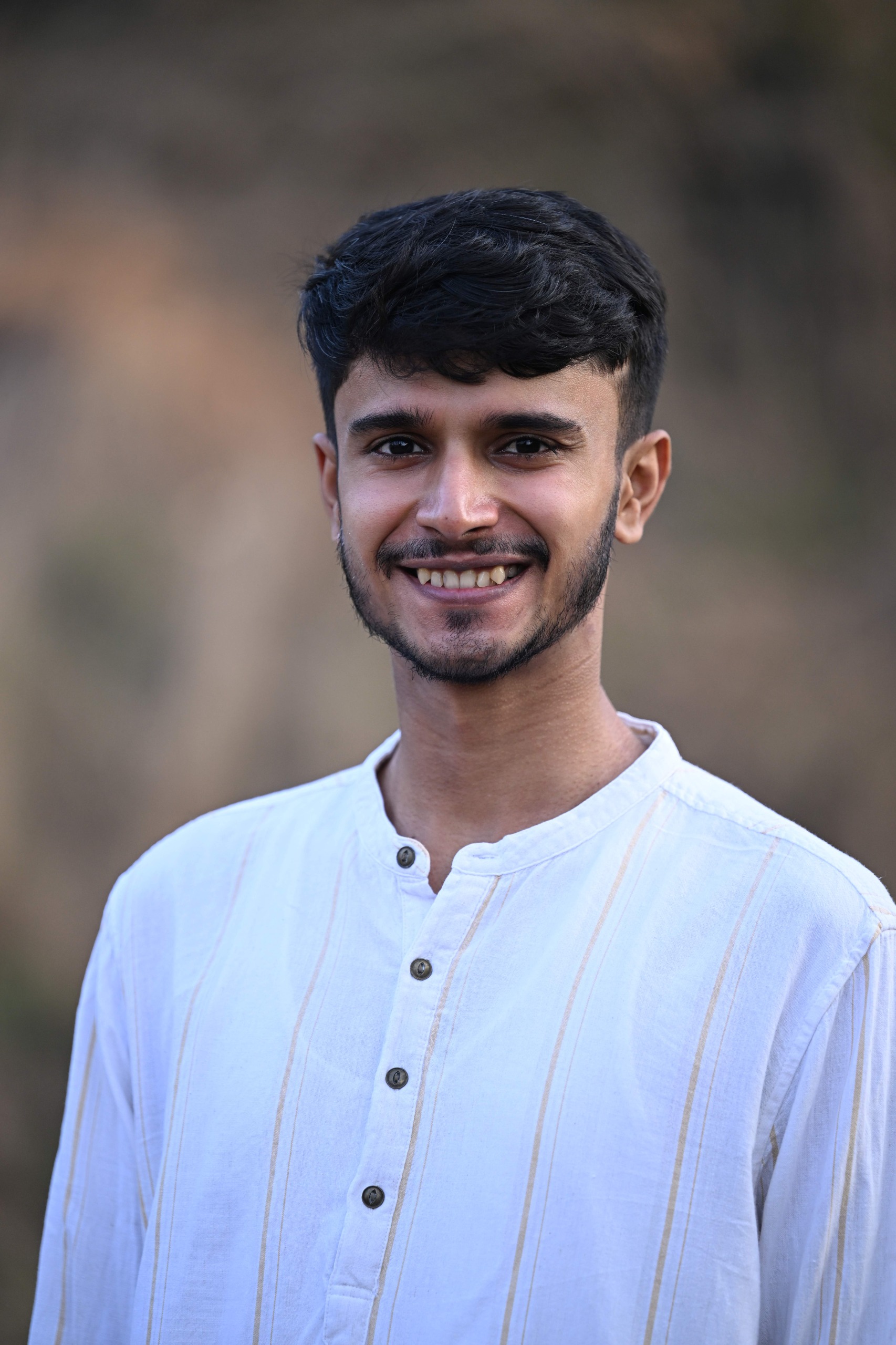
“I am interested in how supermassive black holes shape the galaxies they live in. My research uses computer simulations to explore how powerful winds launched by black holes interact with the surrounding gas, affecting how galaxies grow, form stars, and produce signals that astronomers can observe. Before starting my PhD, I completed my master’s in physics at NISER, Bhubaneswar, India, where I studied magnetic fields in galaxies. I am originally from Mangalore, India.”
Niek Wielders
Niek Wielders is a PhD student who joined Newcastle University in September 2024. His supervisor is Dr James Nightingale.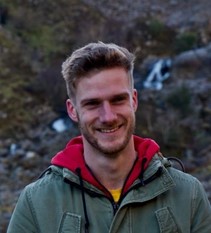
“My research uses the strong gravitational lensing effect of groups of galaxies to determine cosmological parameters. I fit complex models to JWST, Euclid, and HST strong lensing images, and aim to construct an automated modelling pipeline which can fit any group-scale strong gravitational lensing image. Before coming to Newcastle, I did an internship working on cluster-scale strong lensing at Charles University in Prague, analysing the lensing properties of analytical mass profiles. I did my master’s at Cologne University / Bonn University specialising in general relativity and cosmology, and finished my thesis in weak gravitational lensing. Outside of work I love reading classics, running, hiking, brewing beer, and basically any sporty activity.”
Daniel Hill
Dan is a PhD student who joined Newcastle University in September 2024, he is supervised by David Rosario.
Email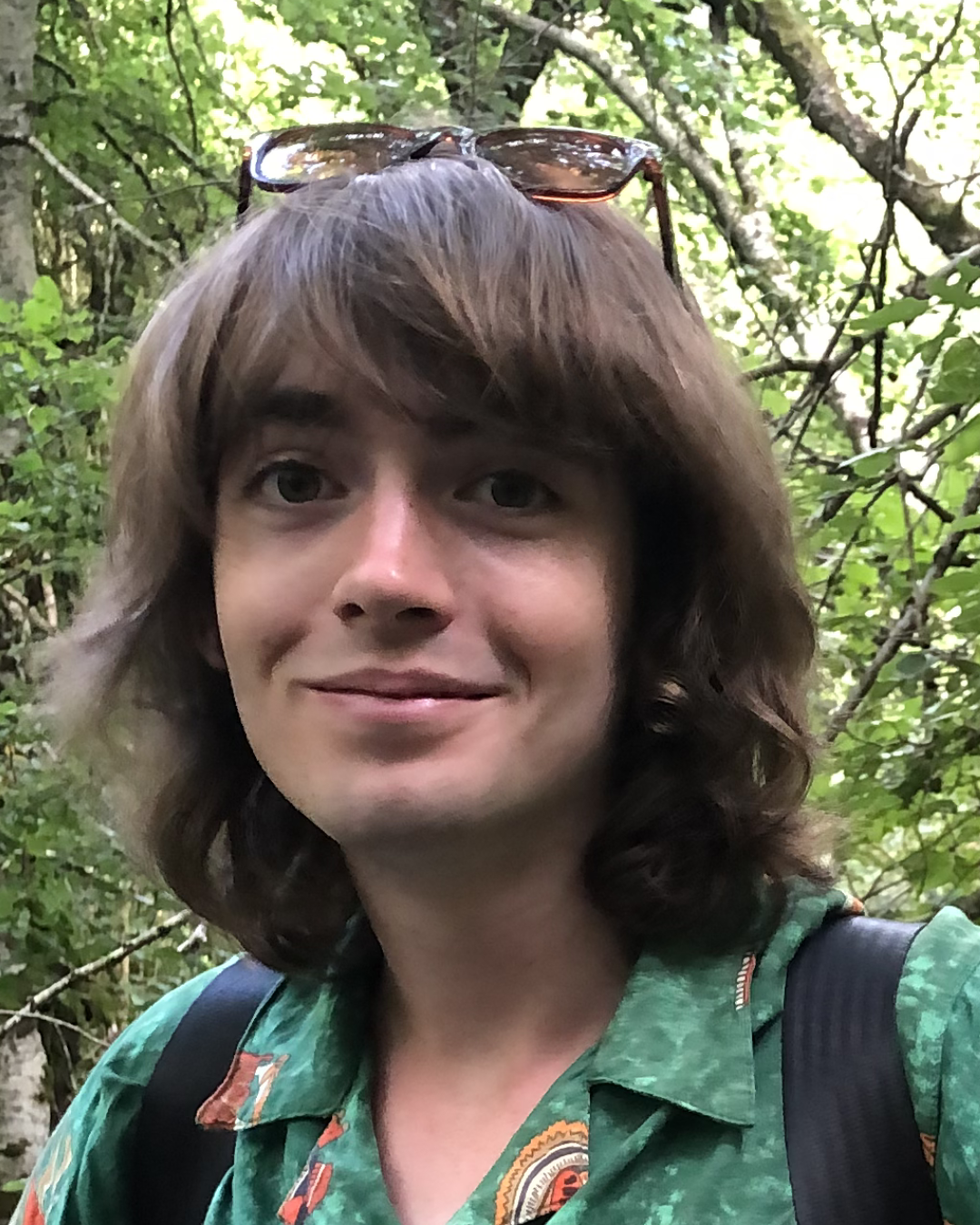
“I completed my MSci at The University of Bristol with a project working on the emission mechanism of X-ray jets in radio galaxies and also achieved my PGCE in secondary science before moving to Newcastle. My research seeks to characterise the effects of AGN feedback in local galaxies using an innovative control sample of matched inactive galaxies: Local Luminous AGN with Matched Analogues (LLAMA). I use multiwavelength data from ALMA, HST and others to measure the effect of the central supermassive black hole on the star-forming material in the nuclear region of its host galaxy and better characterise their long-term coevolution. I am part of cohort 3 of the NUData CDT program and am interested in utilising data-science and machine learning techniques in my research, particularly using deep learning methods to better delineate the higher order structural differences in the nuclear gas distributions in active and inactive galaxies. I am passionate about outreach and getting young people inspired in astronomy. “
Charlie Perkins
Charlie is a PhD student, he joined Newcastle in 2025.
Personal website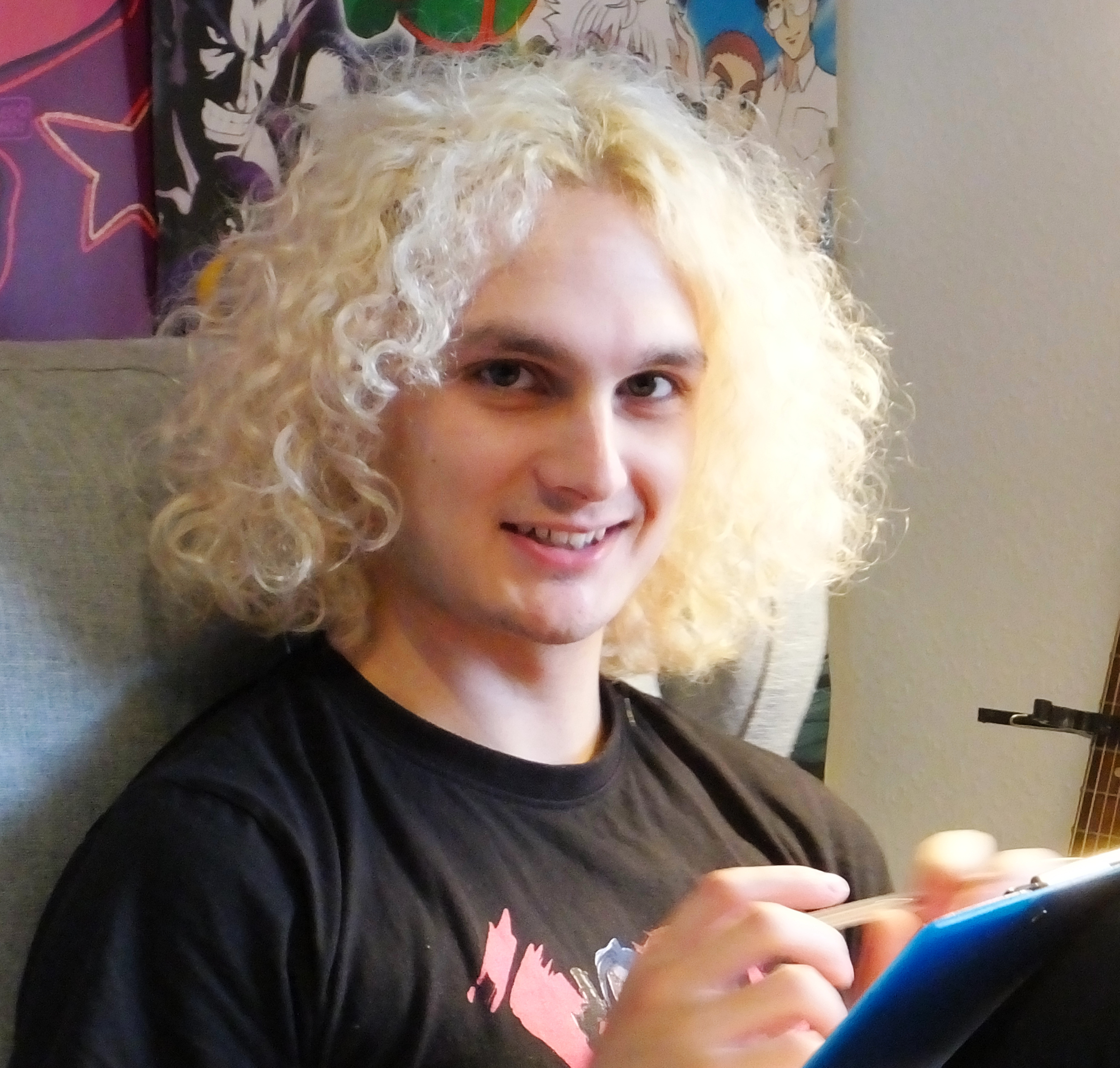
“I am a Theoretical Physics PhD student in the Astro-Obs group, studying under Dr. Andrei Igoshev and funded by the Royal Society. The main focus of my research concerns the modelling of magnetic fields in the cores of ‘type II superconducting neutron stars’. Neutron stars are relatively cold, in a quantum sense, and are the densest objects in the universe. This means that some of the particles in the interior, the neutrons and protons, are expected to be in a quantum state of matter where they can flow with no effective resistance, known as superfluidity and superconductivity. The flow of charged particles, such as protons and electrons, generates a magnetic field, which itself creates a force on the charged fluid and influences its flow. The study of the motion of charged fluids and their magnetic fields is called magnetohydrodynamics, and many Astro-Obs members use its framework in their research. I use advanced numerical techniques to simulate the multi-fluid magnetohydrodynamics of the core of neutron stars, taking into consideration the superconducting and superfluid nature, following from the work of Andrei Igoshev and collaborators. Although I’m now here in Newcastle, I am originally from North Wales, and I completed my MPhys in Physics with Theoretical Physics at the University of Manchester. Outside of academia, I like showboarding, caving, hiking, and gaming.“
Karthika Bhuvanendran
Karthika is a PhD student, she joined Newcastle in 2023.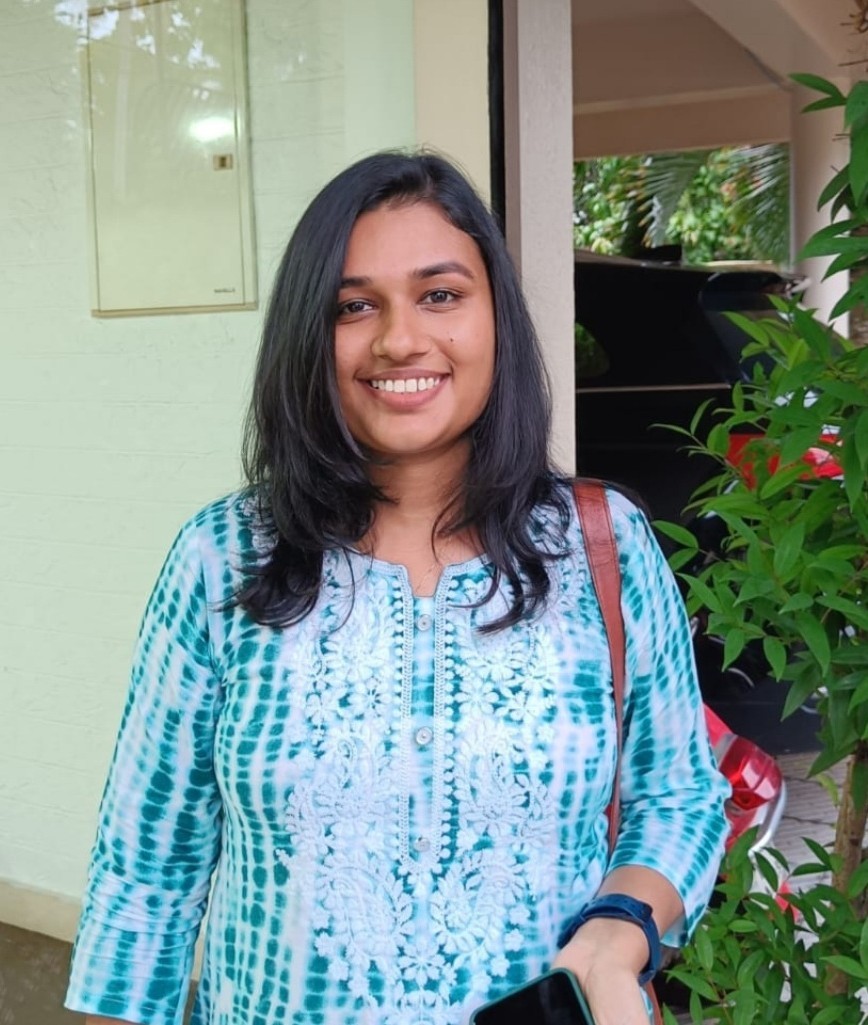
“My research interests are in weak gravitational lensing, one of the most compelling probes of cosmology. Weak lensing measures the distortions on the shape of background galaxies by the foreground cosmic web. Specifically, I am interested in improving our understanding of the dark side of our Universe via cosmic shear analysis by deploying newly developed simulation-based analysis methods. In my research I will specialise in some of these novel analysis techniques. First, I will validate the methods on simulations, then apply the findings on the KiDS legacy data, and subsequently on the first data release of the LSST.“
Danny Dixon
Danny is a PhD student, he joined Newcastle in 2022 and his supervisor is Adam Ingram. 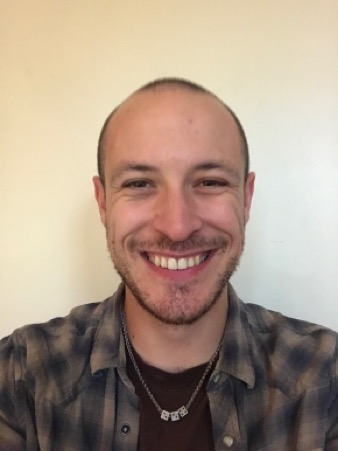
“Stellar population models predict that the Milky Way should be home to around 100 million stellar black holes – we will never detect the majority of these black holes since they do not emit light on their own. For my PhD, I will work with my supervisor, Dr. Adam Ingram, to develop methods to detect stellar black holes in binaries by observing periodic flares in the luminous companion’s brightness caused by gravitational lensing. I previously studied theoretical physics at the University of Leeds and data science with astronomy at Durham University before joining Newcastle. As part of the NUdata CDT cohort, I’ve explored statistical learning techniques in various (non-astronomical) contexts that I hope to apply to detect black holes in upcoming optical surveys. In addition to my research, I am passionate about outreach, and teaching and learning strategies to improve accessibility and inclusivity in STEM subjects.”
Beth Gould
Beth is a PhD student, and her supervisor is Cora Uhlemann. She joined Newcastle in 2022.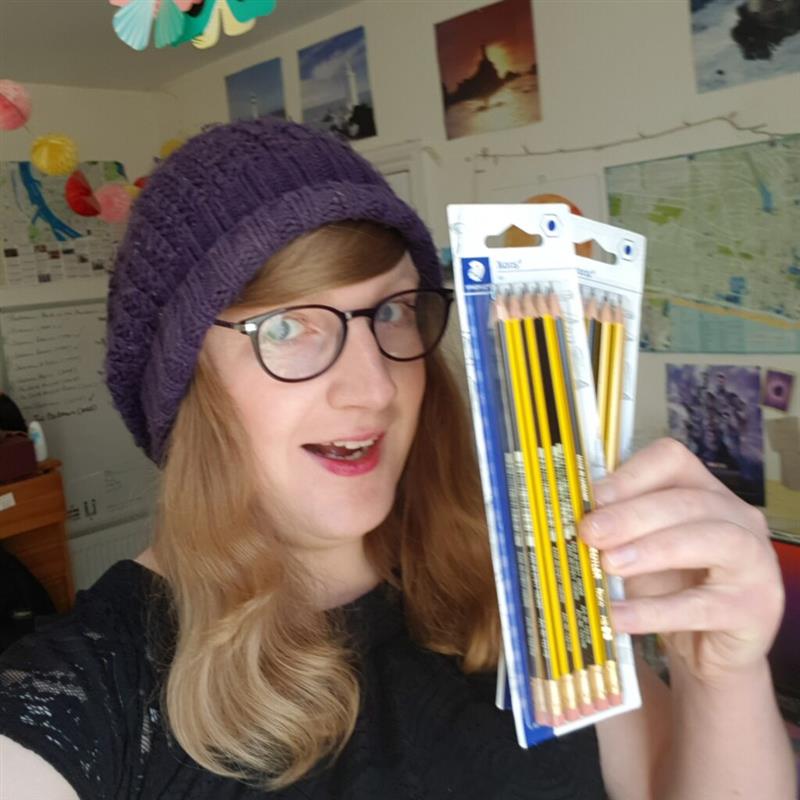
“For my PhD, I’m working on the formation of the cosmic large-scale structure, the gravitational dynamics of dark matter, and developing theoretical techniques to extract information about fundamental physics from 1-point statistics of the late-time matter distribution. Outside of research, I co-run an online community for transgender and non-binary physicists at all levels in academia. For more info about it, follow us on twitter @transphysicists or email transphysicists@gmail.com“
Houda Haidar
Houda Haidar is a 4th year PhD student and her primary supervisor is Dr Tiago Costa.
Personal website 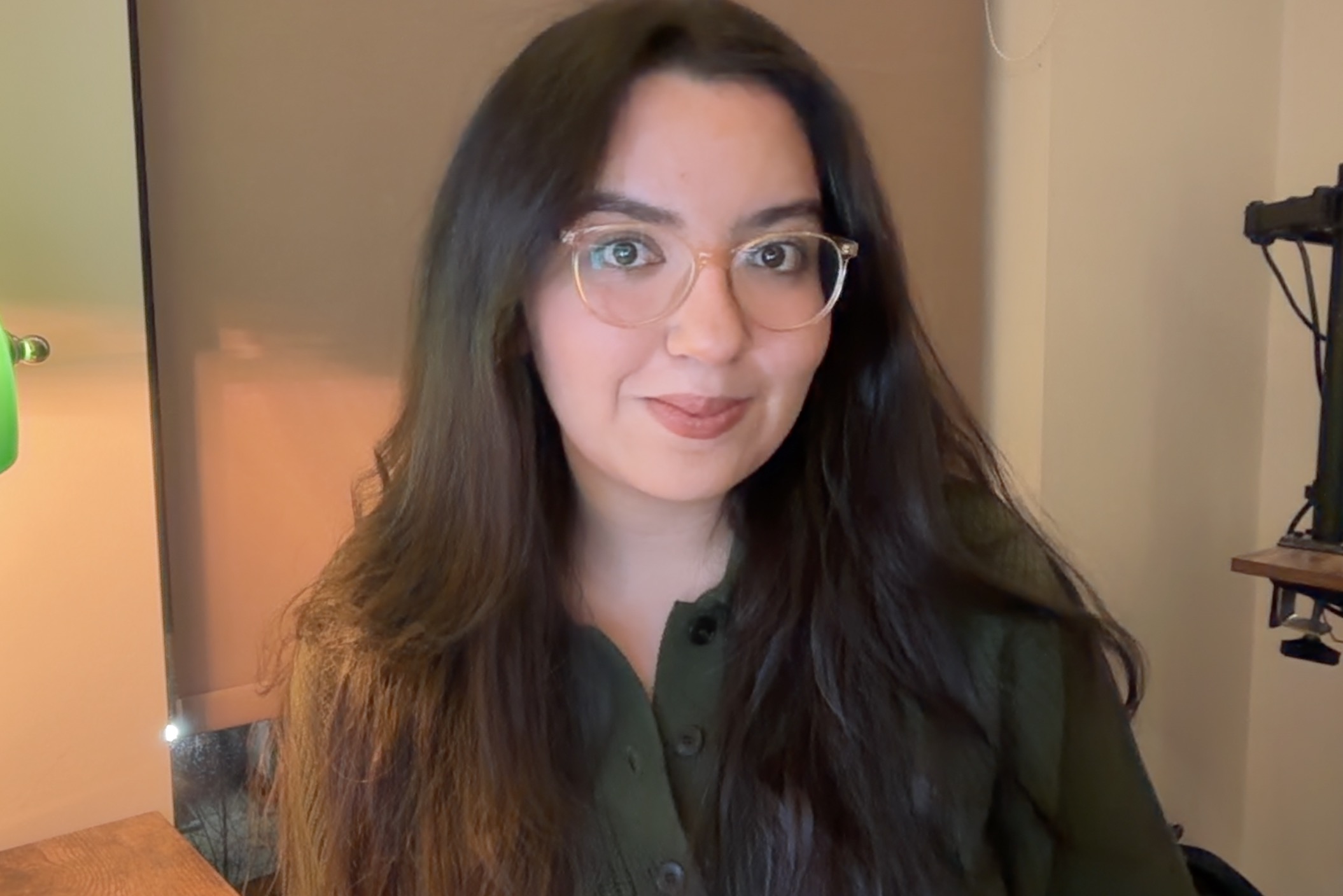
“I am a finishing PhD student researching supermassive black holes! Previously, I’ve completed my Masters at Observatoire de Paris in France and my Bachelors at Queen Mary University of London. My research combines JWST observations with zoom-in hydrodynamical simulations to investigate how dust behaves near supermassive black holes, and what that reveals about their impact on their host galaxies. Find out more here“.
Melissa Ewing
Melissa is a PhD student, she joined Newcastle in September 2022 and her advisor is Adam Ingram.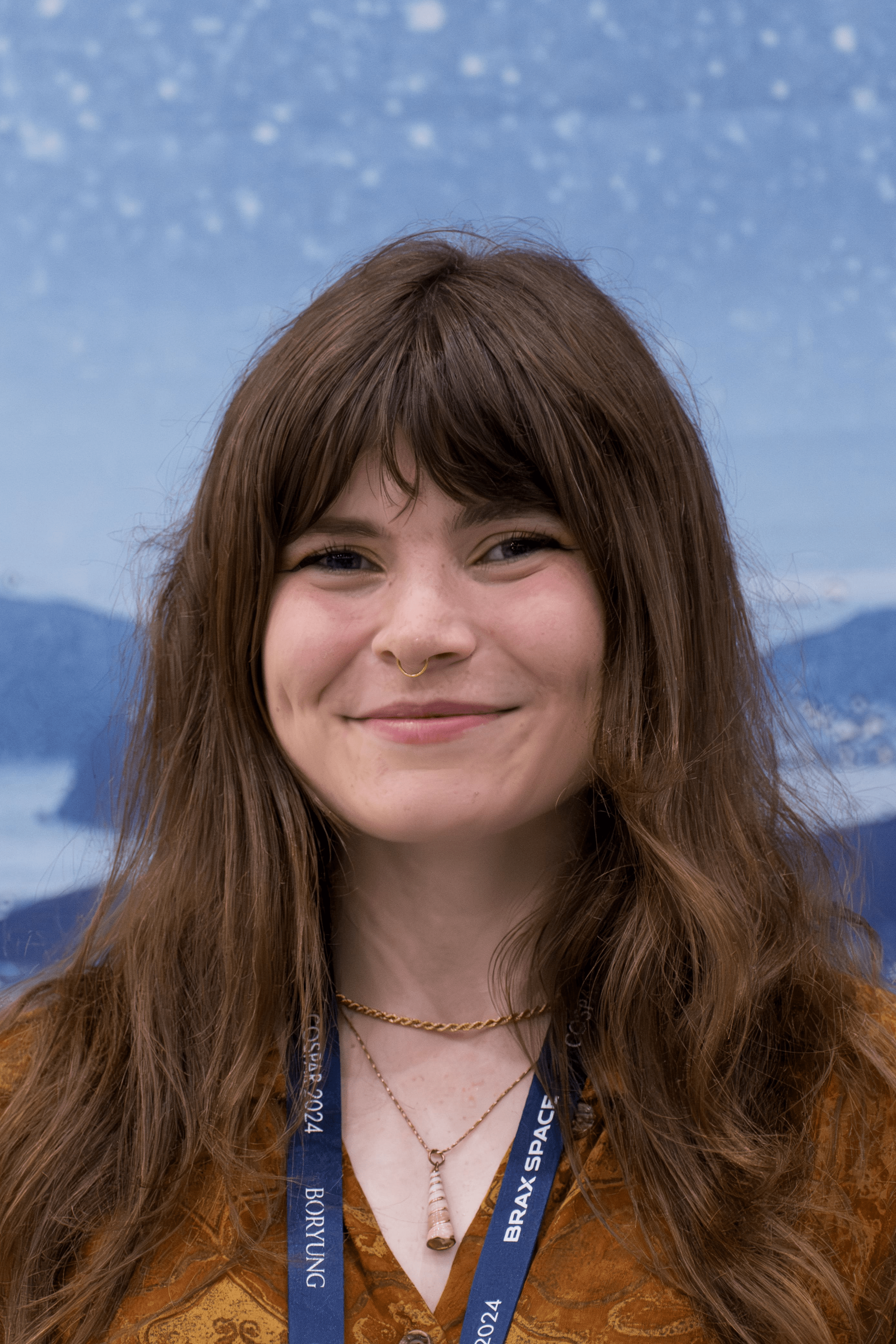
“My PhD focuses on the study of the X-ray Polarisation of X-ray binary systems, which are systems containing a compact object, either a black hole or neutron star, and a normal star from which the compact object is accreting from. The innermost region of accretion, which we call the corona, is too small for us to spatially resolve (we observe it as a point source) and so in order to study these regions, we consider the X-ray signature of the matter as it falls onto the compact object. This signature displays Type-C QPOs- a broad peak above a broadband noise in the Powerspectrum of the X-ray lightcurve of the corona, the origin of which remains elusive. I am using a novel method of X-ray Polarimetry Timing to test the Lense-Thirring precession model, the leading theory behind the Type-C QPO, to determine once and for all the origin of this phenomenon observed in the most extreme gravity regimes.”
Ankur Kalita
Ankur is a PhD student, he joined Newcastle in April 2024 and his supervisor is Dominic Bowman.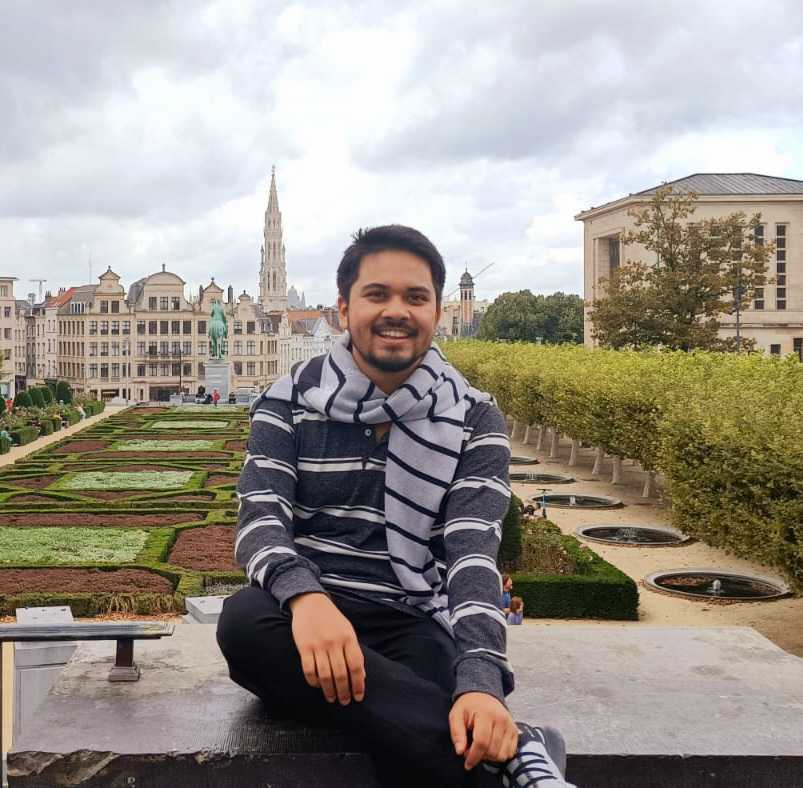
“I come from the north-eastern region of India. I did my undergraduate degree at Cotton University, Assam, before moving to KU Leuven, Belgium for my masters in Astronomy and Astrophysics. Since April 2024, I’m based at Newcastle University for my PhD in Astrophysics within the SYMPHONY project led by Dr. Dominic Bowman. My research interest revolves around applying different observational methods and statistical tools to better constrain the evolution of massive stars. As part of the SYMPHONY project, I’m working towards understanding the physical origin of macroturbulence using asteroseismology and high-resolution spectroscopy. Besides astronomy, I’m also very interested in data science and machine learning in general. In my free time, you’ll find me watching football, hiking, trying different beers at the bar, or reading crime thrillers.”
Logan Dennis
Logan is a PhD student, he joined Newcastle in September 2024 and his supervisor is Dominic Bowman.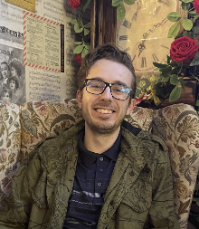
“I lived in the West Midlands of the UK for most of my life, before moving to Keele University in September 2021 to complete my BSc in Physics with Astrophysics. After graduating, I moved to Newcastle University to begin my PhD under the supervision of Dr. Dominic Bowman funded by the Royal Society. Outside of my research you will find me playing (too many) video games, venturing on walks to take in the sights of nature and going to the pictures. My PhD is funded by Dr. Dominic Bowman’s Royal Society University Research Fellowship (URF) grant, and is focused on eclipsing binary systems that contain a massive star component. Using photometry, spectroscopy and evolutionary modelling, my research goal is to conduct binary and forward asteroseismic modelling to accurately and precisely measure the core masses of these systems.”
Pieterjan Van Daele
Pieterjan is a PhD student, he joined Newcastle in October 2024 and his supervisor is Dominic Bowman.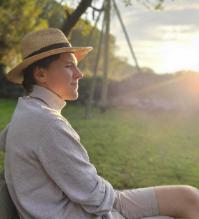
“I am originally from Bruges, Belgium, and obtained my MSc Astronomy and Astrophysics at KU Leuven in June 2023. I am now based at Newcastle University where I have joined the extended SYMPHONY project team led by Dr. Dominic Bowman. Beyond my passion for the stars, I love music, traveling, experimenting with new recipes in the kitchen and woodcraft. On weekends, you can often find me outdoors, appreciating some nature. My research interest lies in using asteroseismology to study the evolution of massive stars, with a focus on their interior physics. For my PhD thesis, I am developing new PSF-based light curve extraction techniques. With such high-quality light curves from the NASA TESS mission (and soon also ESA’s PLATO mission to launch in 2026), I am investigating the occurrence and physical origin of stochastic low-frequency variability for a large and diverse sample of massive stars. Ultimately, I am to provide valuable constraints on the current mysteries surrounding massive star interiors, including angular momentum transport, convection, turbulence, and chemical mixing.”
Devang Liya
Devang is a PhD student, he joined Newcastle in 2022 and his supervisor is David Rosario.
Personal website
“My PhD project involves studying the cosmic evolution of near-nuclear dust in Active Galactic Nuclei (AGN), which are growing supermassive black holes (SMBHs). I use JWST and other multi-wavelength surveys to study the emission from a large sample of distant AGN. I also employ advanced Bayesian techniques to model and decompose this emission to reveal the AGN’s contribution, and develop machine learning techniques to improve upon existing modelling frameworks. Apart from these, I like to explore computation driven solutions to the real world problems. My other interests include science outreach (often in vernacular), and learning about all kinds of flags! Visit my website to learn more or to get in touch.”
Charlie MacMahon
Charlie was an MRes student (2020-2021) and decided to rejoin Newcastle as a PhD student in 2022. His advisor is Dani Leonard.
Twitter: @CMBmacmahon | Personal website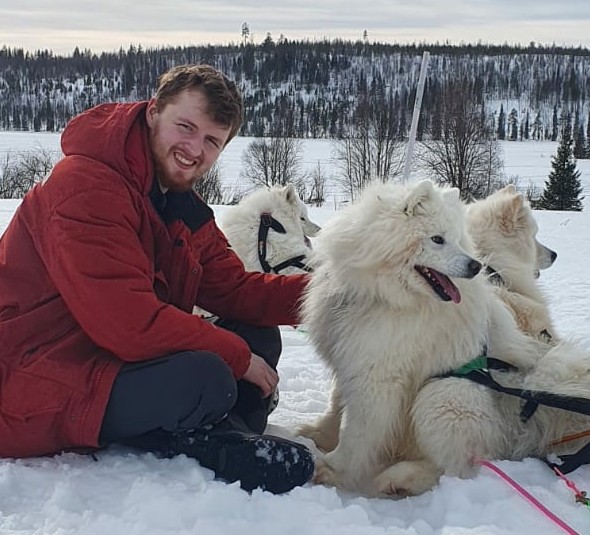
“My PhD is focused on developing a novel method for measuring the intrinsic alignment systematic effect in weak lensing surveys. To do this, I am investigating the different measurement methods used in weak lensing surveys and how they can be modified to extract high signal-to-noise intrinsic alignment measurements. With these measurements we can then test and constrain intrinsic alignment models for data processing in future lensing surveys.”
Carolyn Mill
Carolyn is a PhD student. She joined Newcastle in 2023 and is co-supervised by Dani Leonard and Cora Uhlemann.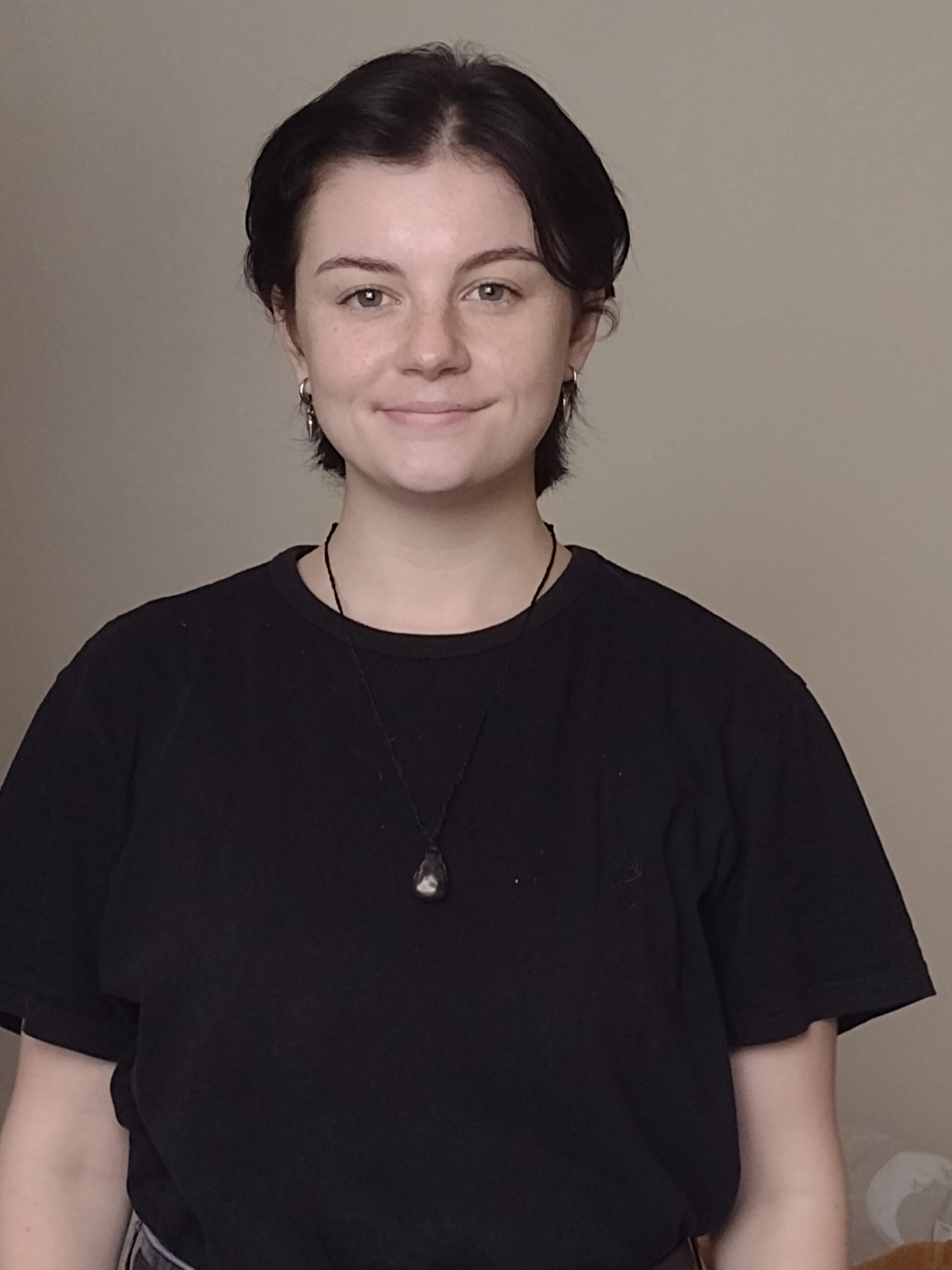
“My PhD project focuses on how the interactions between systematic biases in our analysis of weak lensing and galaxy clustering will impact our measurements in upcoming surveys. Due to the high accuracy of these surveys, systematic uncertainties no longer hidden by statistical noise may limit our ability to constrain cosmological parameters. My project aim is to identify what combinations of systematics may cause these limitations, starting with the 3×2 correlation function between weak lensing and galaxy clustering.”
Federica Nardini
Federica is a PhD student who joined Newcastle University in January 2024 and her supervisor is Dominic Bowman. 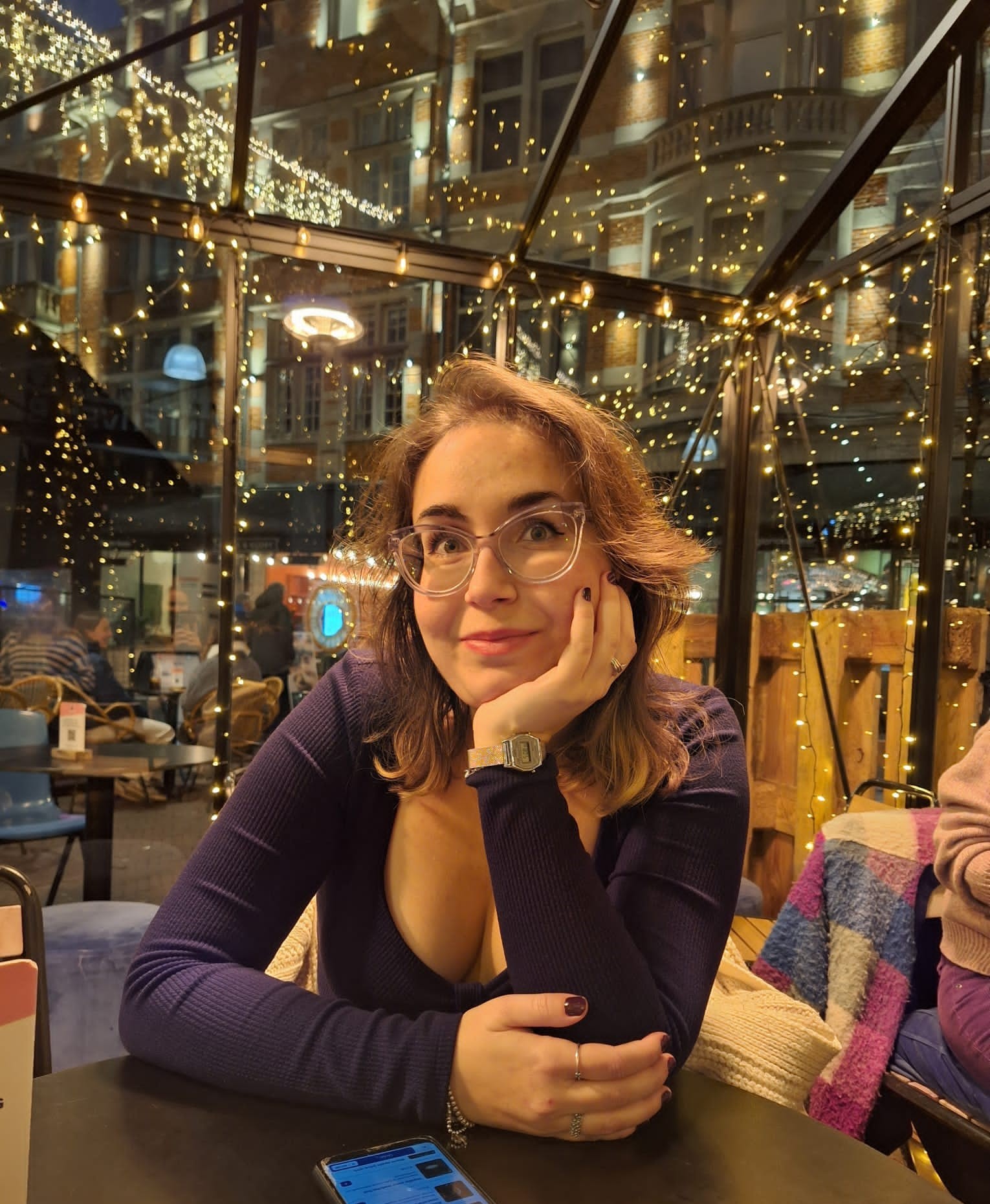
“I’m originally from Italy, and spent a couple of years in Belgium at the Institute of Astronomy, KU Leuven studying to obtain my MSc in Astronomy and Astrophysics. Since January 2024, I am based at Newcastle University for my PhD in Astrophysics under the supervision of Dr. Dominic Bowman as part of the SYMPHONY project. I enjoy exploring new places, meeting people from all over the world and learning about their culture. In my free time, you will find me at concerts, museums, and soaking up the arts. My research focus is on pulsating massive stars within binary systems, and I am interested in the relationship between self-excited pulsations and the orbital properties. Using spectroscopy and asteroseismology, the goal of my PhD is to understand how pulsations in massive binary systems can be most effectively exploited to learn more about binary massive star evolution and how this may differ to single stars.”
Rose Shepherd
Rose is a PhD student and her supervisors are Chris Harrison and Paul Vickers (Northumbria University). She joined Newcastle in 2023 as part of the NUdata CDT.
“My PhD project is focused on developing sonification methods and tools to explore large, astronomical datasets. Sonification is the process of representing data with sound. I will investigate whether sonification can be beneficial in the identification and classification of quasars from their spectra. I will also be using sonification to explore spectral data cubes which could potentially aid discovery of extended emission line regions. Sonification offers innovative outreach possibilities, and I am excited to get involved with the Audio Universe team, making accessible planetarium shows and resources. Outside of my studies I enjoy playing clarinet, and I hope to apply my musical skills to my sonification research.”
Carola Zanoletti
Carola is a PhD student, she joined Newcastle in 2022 and her advisor is Dani Leonard.
“My PhD project involves testing gravity on cosmological scales by using agnostic parametrisations for modified gravity. This involves exploring parameter estimations from different observational probes and testing data by considering specific alternative theories of gravity. I will also be studying degeneracies between gravitational parameters to find accurate physical interpretations of true descriptors of theories.“
Aditya Verma
Adi is a PhD student, he joined Newcastle in 2024 and his advisors are Gerasimos Rigopoulos, Nikolaos Proukakis, and Gary Liu.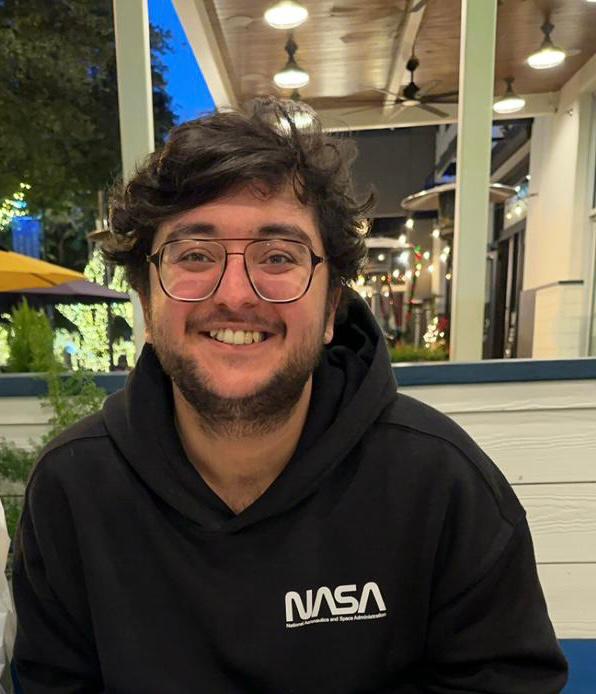
“My research involves developing a hybrid Dark Matter (DM) model that combines the existing Cold Dark Matter (CDM) model with a “Fuzzy” Dark Matter (FDM) model and treats DM as a cosmological superfluid. While the existing DM model is extremely successful at a macroscopic level (Large-Scale Structure Formation), discrepancies start to arise at galactic-halo scales, and FDM aims to tackle these. The goal is to perform high end non-linear simulations for such a model, to attain a richer phenomenology that can confront results of galaxy surveys and allow for refined constraints on the physical parameters that govern these models. The aim is to achieve this by focusing on stellar trajectories in FDM halos and how these would translate to observable rotation curves.“
Past Students
Nikolina (Niko) Šarčević
Niko was a PhD student working primarily with Dani Leonard, modelling intrinsic alignment of galaxies in weak lensing measurements, non-linear scale effects within cosmological modified gravity models and the statistical problems for late-time cosmology. She went on to hold a position at Duke University.
Personal website
Patrick O’Neill
Patrick was a PhD student working on pulsar timing data and X-ray binaries, working with Adam Ingram, and previously Anne Archibald. He went on to hold a postdoctoral position at the University of Hull.
Matthaios Charidis
Matthaios was an MPhil student working with David Rosario on JWST mid-infrared imaging. He went on to be a laser systems engineer.
Samuel Ward
Samuel was a PhD student jointly between the European Southern Observatory and Newcastle, under the supervision of Chris Harrison and Tiago Costa. His PhD work used simulations to understand AGN feedback, with a focus on helping interpret observations. He went on to hold a research fellowship at the Flatiron Institute for Computational Astrophysics.
Alex Gough
Alex was a PhD student, working with Cora Uhlemann on theoretical techniques in large-scale structure formation. They went on to train as a secondary school Physics teacher.
Aishwarya Girdhar
Aish was PhD student jointly between the European Southern Observatory and Newcastle. Her research was about understanding how rapidly growing supermassive black holes (“quasars”) impact upon their host galaxies with advisor Chris Harrison. Aish went on to take a postdoc position in astrophysics education at LMU in Munich.
Sean Dougherty
Sean was an MPhil student in Newcastle from 2021-2022 and his advisor was Chris Harrison. His research focussed on understanding the role of mergers in triggering black hole growth, and radio jets in driving outflows, for galaxies at cosmic noon. Sean went on to take a data science job in the USA.
Andrew Garner
Andrew was a MRes student in Newcastle from 2020-2021 and his advisor was Chris Harrison. His research focussed on understanding the the connection between radio emission and ionised gas in low redshift quasars. Andrew went on to take a PhD at the University of Surrey
